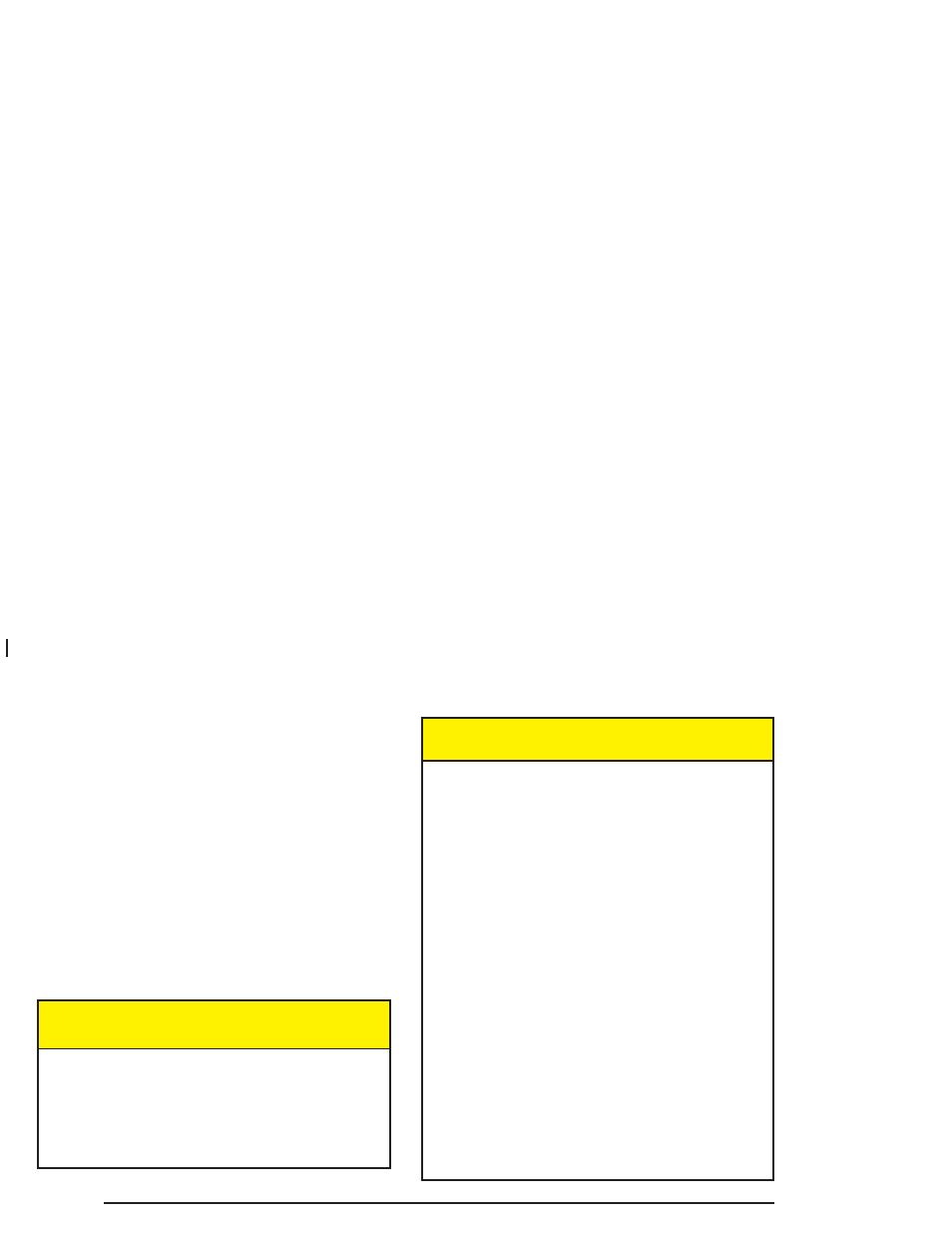Air bag systems, Air bag systems -48, Caution – Pontiac 2004 Grand Prix User Manual
Page 54

Air Bag Systems
This part explains the air bag systems.
Your vehicle has air bags – one air bag for the driver
and another air bag for the right front passenger.
Your vehicle may also have roof-mounted side impact
air bags; one for the driver and the passenger
directly behind the driver and one for the right front
passenger and the person seated directly behind that
passenger.
Air bags are designed to help reduce the risk of injury
from the force of an inflating air bag. But these air bags
must inflate very quickly to do their job and comply
with federal regulations.
Here are the most important things to know about the
air bag system:
{
CAUTION:
You can be severely injured or killed in a crash
if you aren’t wearing your safety belt – even if
you have air bags. Wearing your safety belt
during a crash helps reduce your chance of
CAUTION:
(Continued)
CAUTION:
(Continued)
hitting things inside the vehicle or being
ejected from it. Air bags are “supplemental
restraints” to the safety belts. All air bags are
designed to work with safety belts but don’t
replace them.
Frontal air bags for the driver and right front
passenger are designed to work only in
moderate to severe crashes where the front of
your vehicle hits something. They aren’t
designed to inflate at all in rollover, rear or
low-speed frontal crashes, or in many side
crashes. And, for some unrestrained
occupants, frontal air bags may provide less
protection in frontal crashes than more
forceful air bags have provided in the past.
The roof-mounted side impact air bags are
designed to inflate only in moderate to severe
crashes where something hits the side of your
vehicle. They aren’t designed to inflate in
frontal, in rollover or in rear crashes. Everyone
in your vehicle should wear a safety belt
properly — whether or not there’s an air bag
for that person.
1-48